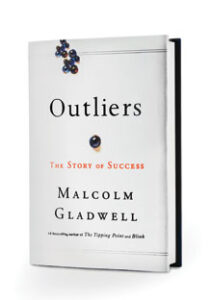Want to be a Personal Trainer or Strength Coach? Start Here.
It’s an email I get at least twice a week from a random reader, and it goes something like this:
“My current job just isn’t fulfilling, but I really love fitness and want to turn it into a career. What certification do you recommend?”
I get these type of inquiries so often that I decided that this bit of writing would be my autoresponse which – as you’ll see below – has a bit of tough love that I think these folks need to hear.
A few months ago, Rachel Cosgrove said that about 80% of those who enter the fitness industry leave it within a year. I haven’t seen the statistic myself, but Rachel knows her stuff and meticulously monitors the business side of the fitness industry and I defer to her completely.
Does it say something about the “status quo” that our industry probably has more turnover than a janitorial position at your local zoo?
Why the crazy turnover within the first year? Well, for starters, I feel like entering the fitness business is an impulse decision for a lot of folks. They hate their current jobs so much that they have to go to the opposite end of the spectrum to one of the only things in their lives that makes them happy: exercising.
Two months later, they realize that they’re working 60-hour weeks on their feet because they have floor hours at their local commercial gym in the middle of the day on top of their only two personal training clients – who conveniently schedule at 5AM and 6PM. They’re rewarded with a whopping $600 check every two weeks, after taxes. Starting with the 2011 tax plan, it’ll probably be $200; take notes, kids.
But you’ve got passion, right?
Wrong.
Passion (and optimism) might get you out of bed for that 5AM client, but only determination, preparation, intrapersonal skills, organization, and a solid understanding of exercise physiology are going to make it possible for you to get through the rest of the day while being happy and making sure that you’re just a little bit better the next day.
And, I will tell you flat-out that every single trainer I have ever met has had days when exercise was the last thing they wanted to do. For me, it happened in the fall of 2006 every Tuesday and Thursday night – when my football guys came in to train with me at 7:30PM after I’d been training clients since 6:30AM. Were it not for this kind of energy in my training partners, I probably would have gone home and just gone to bed.
Obviously, that’s a worst-case scenario. However, I’m never going to discourage someone from pursuing what they feel could be a livelihood where they’d be happy and helping people. I would, though, encourage them to adhere to the following steps (in this order):
1. Go observe a few current fitness professionals who are successful in their crafts. Ask questions and get a feel for whether this is a good fit for you before you jump into the deep-end, quitting your job and investing all sorts of cash in a career change.
2. Wait a year to get a certification. What? Huh? This is supposed to come first, right? Wrong. Getting a certification without any background experience makes you a liability, not a professional. Every penny you spend in that first year should be on books, DVDs, seminars, and travel to go observe other coaches/trainers in action. And, you should be taking advantage of all the free resources there are for you to get educated online. Don’t ignore fitness industry business resources, either; they aren’t taught with certifications or degrees, but are tremendously important.
3. Get an internship. This is an extension of #1 – and it still comes before getting a certification. You need to log at least three months of 40-hour weeks somewhere learning your craft and paying your dues. Get a feel for whether you could see yourself doing this long-term.
Obviously, this is a concern because it would require you to quit your job, so you’d need to save up for this period. However, you would be amazed at how many interns are hired by facilities after their internship period is over (all our “hires” at Cressey Performance have been former interns). And, most facilities will pay for your certification and CPR/AED training, and some will even give you a continuing education stipends on top of it.
4. Get a certification. Yes, it is step 4. Frankly, I don’t really care what certification you get because none of them really wow me, but then again, I have a hard time justifying an undergraduate exercise science degree for $100, let alone $200,000. If I was 18 today, I’d save all that money, get an internship, and spend the cash on loads of books/DVDs – and taking selective courses (gross anatomy, kinesiology and biomechanics). A lot of folks, for instance, have told Mike Robertson and I that they learned more practical information in our Building the Efficient Athlete DVD set than they did in their entire college careers – for only 0.0015% the price.
And, I sure as heck wouldn’t pay a university fo accept my internship credits; that’s one of the biggest scams of all time! However, before I digress too much on that front, get the certification. Most jobs will require it even if it is just a small foot in the door.
5. Pay your dues. There is no way around it. You aren’t magically going to have a full client roster on your first day of a job; you have to start somewhere. I can promise you that you will be better off with the background you’ve created with steps 1-4.
In Outliers, Malcolm Gladwell talks about the importance of accumulating 10,000 hours in order to become an expert in one’s field. There are only 8,760 hours in a year – and even if you assume 60-hour work-weeks, it’s still going to take over three years to get to that 10,000-hour mark.
The 80% who don’t make it past the first year simply didn’t understand that you can’t live the life of an established professional, industry expert, or even someone who has seniority if you don’t put in the hours.
You’ve probably noticed that I geared a lot of this toward those in the private sector. However, much of it will still apply to those looking to go into college strength and conditioning – but keep in mind that you will run into a lot of hurdles in college S&C if you don’t have a college degree in a related field. That’s just the game as it’s played, so keep it in mind.
A big part of longer-term success will be how you approach continuing education. If you do it and take it seriously, you’ll be ahead of 90% of the trainers and coaches out there. A great resource in this regard is Elite Training Mentorship, our online education program that helps fitness professionals learn how to evaluate, program, and coach. Check it out: Elite Training Mentorship.
Do any of you veterans have any tips for the aspiring up-and-comers in the business? If so, post them as comments.
Sign up for our FREE Newsletter today and and receive this deadlift technique video tutorial!





